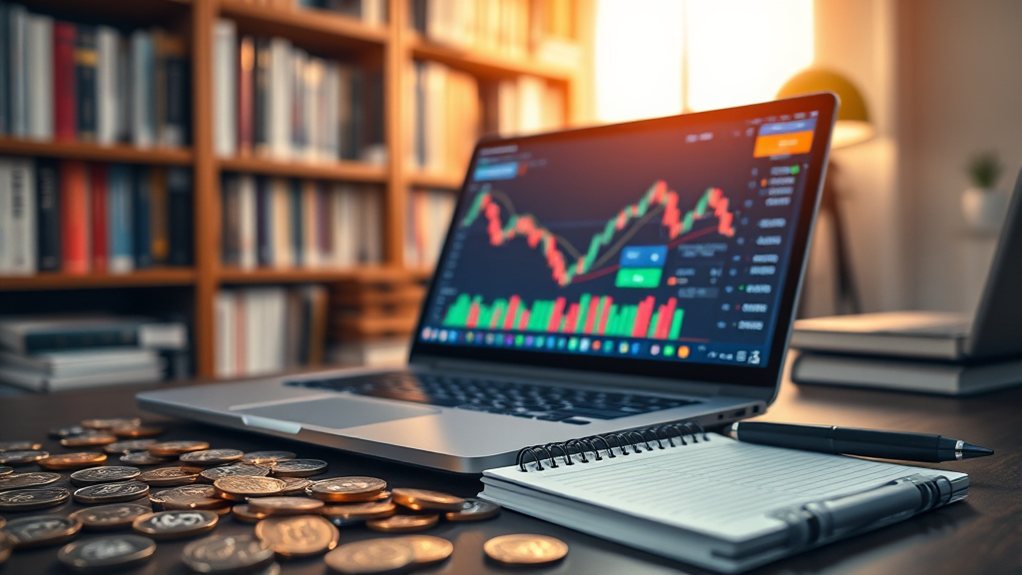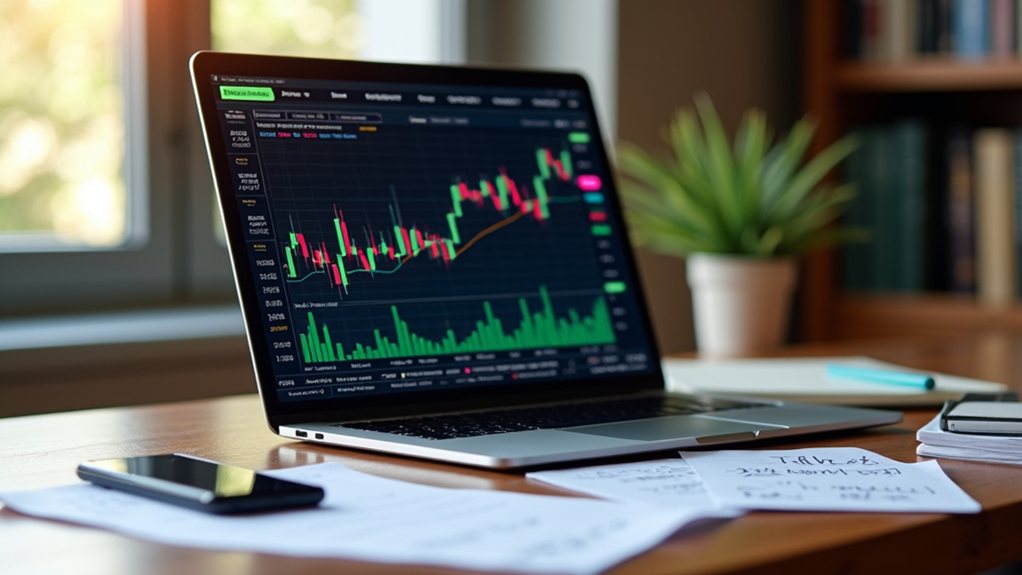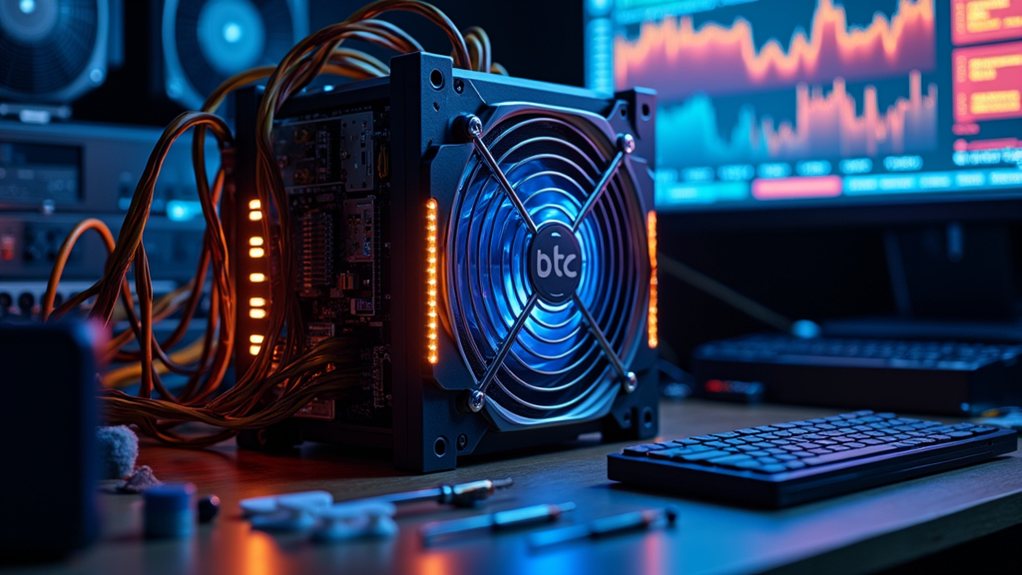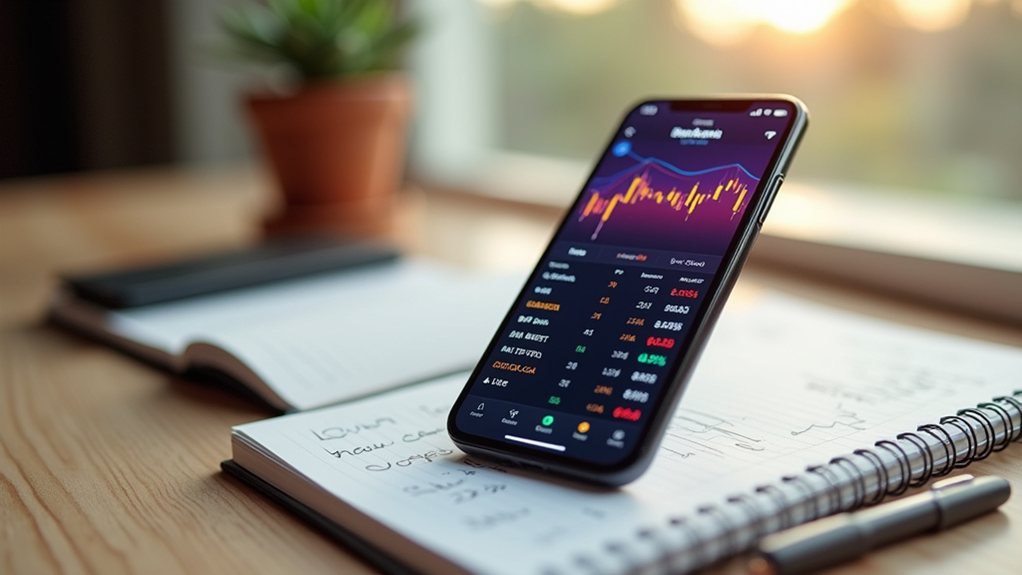Successful crypto trading isn't for the faint-hearted. It demands solid education in blockchain fundamentals and market analysis. Traders must select reputable exchanges with tight security—plenty have vanished overnight with investors' funds. Risk management is non-negotiable; set those stop-losses. Both technical chart patterns and fundamental project research matter. Practice with demo accounts before risking real money. The crypto market rewards those who prepare while punishing the ignorant.

While the allure of overnight crypto riches tempts many newcomers, successful cryptocurrency trading requires more than luck and timing. It demands education, strategy, and discipline. Smart traders don't jump in blind. They study blockchain fundamentals first, learning how this technology powers everything from Bitcoin to the newest altcoins. They absorb crypto terminology, analyze historical price movements, and explore various trading approaches. Not rocket science, but not exactly child's play either.
Selecting a trustworthy exchange comes next. The crypto landscape is littered with horror stories of exchanges disappearing overnight—along with everyone's money. Traders need to verify security measures, check regulatory compliance, and compare fee structures across platforms. An exchange with poor liquidity or excessive fees can kill profits faster than a market crash. And believe it—there will be crashes.
Successful crypto traders develop concrete plans before risking a single satoshi. They define clear financial objectives and determine how much they can actually afford to lose—because losses will happen. Period. They establish precise entry and exit points for trades and implement position sizing to avoid betting the farm on a single coin. The wild-eyed gamblers rarely last long in this market.
Trading without a concrete plan is just gambling with extra steps. Define limits before risking a satoshi.
Risk management isn't just important—it's everything. The crypto market doesn't care about anyone's financial situation. It will happily take all your money if you let it. Setting stop-losses, diversifying across multiple assets, and regularly reassessing exposure keeps traders in the game long-term. Experienced traders often limit their risk by setting a maximum percentage of capital to risk on each individual trade. Remember: you can't recover from a 100% loss.
Technical and fundamental analysis provide the roadmap for trading decisions. Chart patterns, indicators like RSI and MACD, and on-chain metrics offer insights into potential price movements. Meanwhile, project fundamentals—team credibility, technological innovation, and community engagement—help separate legitimate projects from elaborate pump-and-dump schemes. And yes, there are plenty of those. Understanding market cycles helps traders identify optimal buying and selling opportunities based on historical patterns and halving events.
Before risking real capital, experienced traders practice using demo accounts. Paper trading lets them test strategies, track performance, and familiarize themselves with platform features without financial consequences. Making mistakes with fake money beats losing real money every time. Traders can also utilize CFD trading to speculate on cryptocurrency price movements without actually owning the underlying assets.
The crypto landscape evolves constantly. Regulations change, new technologies emerge, and market sentiment shifts dramatically—sometimes based on a single tweet from a billionaire. Successful traders stay informed through reputable news sources, participate in crypto communities, and continuously refine their approaches. They adapt or they perish.
Cryptocurrency trading isn't a get-rich-quick scheme. It's a skill developed through education, practice, and sometimes painful experience. The ones who succeed aren't necessarily the smartest—they're the most prepared, disciplined, and persistent.
Frequently Asked Questions
How Do Taxes Work for Cryptocurrency Trades?
Crypto trades don't fly under the tax radar. Each swap—crypto-to-fiat, crypto-to-crypto—triggers a taxable event. Ouch.
Hold less than a year? Uncle Sam taxes gains as ordinary income. More than a year? Lower long-term rates apply.
Miners and stakers report earnings as income. Losses offset gains, up to $3,000 annually against other income.
Exchanges will start issuing 1099s in 2025. The IRS is watching, folks.
What Are the Safest Wallets for Storing Crypto?
Hardware wallets win the security crown, hands down.
They're offline fortresses for your private keys. No hacking possible. Period. Multi-signature wallets add another layer—requiring multiple approvals for transactions. Smart.
Software wallets? Convenient but vulnerable to online attacks.
Custodial options let exchanges hold your keys. Easy, but remember: not your keys, not your crypto. They control everything.
Each has trade-offs between security and convenience. Choose wisely.
Should I Follow Social Media Influencers for Trading Advice?
Social media influencers and crypto advice? Dangerous combo.
Research shows followers typically lose money—about 6.5% within a month of following recommendations. Yikes. Only 20% of promotional content even discloses paid relationships.
That said, influencer content can introduce concepts and synthesize complex information. Not all bad, just risky.
If using influencer content, verify credentials, cross-reference claims, and never make it your only research source. Their flashy predictions? Usually garbage.
How Do I Recognize Crypto Scams and Avoid Them?
Crypto scams lurk everywhere these days.
Red flags include guaranteed returns (nothing's guaranteed, duh), pressure to invest quickly, and celebrity endorsements that seem fishy. Scammers love phishing, pump-and-dumps, and romance schemes.
Some simple defenses? Research projects thoroughly. Use secure wallets. Double-check URLs before clicking.
And if something sounds too good to be true? It probably is.
Welcome to crypto—trust no one.
What Psychological Traits Help Traders Succeed in Volatile Markets?
Successful crypto traders have iron stomachs. Market plunges 20%? They shrug. Emotional discipline separates winners from losers—period.
The patient ones wait for perfect entry points while everyone else panic-buys garbage tokens. Adaptability matters too. Yesterday's strategy? Might be trash today.
But above all, risk management keeps them alive. No stop-losses? No trading career. Some fools learn this lesson the expensive way.








